Speaker
Description
In recent years, studies and experiences of other countries confirming the links between the development of women's entrepreneurship (WE) and GDP. It has revealed not only barriers but also opportunities for quantitative and qualitative improvement in the development of women's entrepreneurship. For example, in Central Asia countries, the government has started to create national programs to support women's entrepreneurship, thanks to international organizations, there are more activities in the area of access of women's entrepreneurship to finance, education, information, overcoming stereotypes that inhibit women; and platforms for solidarity and partnership between women's entrepreneurship, NGOs, and sectoral business associations have been created.
However, the implementation of these important programs requires the development of policy documents, and activities need to be evaluated, refined, adjusted and resources used more efficiently. This requires continuously collected data on real situation of women enterprenuers, both in the country (in the Kyrgyz Republic ), and in the CA region, because it is profitable and expedient to trade as a region with tje world.
To provide an answer, the general patterns of women entrepreneurship in Kyrgyzstan need to be understood first. In order to build Female Entrepreneurship Index in Central Asia, we propose an adaptation of the theoretical framework of the Global Female Entrepreneurship Index developed by The Global Entrepreneurship and Development Institute (GEDI). However, realizing the international significance of this index, we propose its expansion, as taking into account regional specificities will allow us to more accurately identify not only barriers, but also but also oprtunities in some sectors, provinces etc. This approach will allow for more appropriate use of both financial resources and human capital for the development of WE in the KR, in CA.
Regular, more frequent data collection, e.g. 1-2 times a year, will allow for a more realistic policy, help busines assosiations, govrepresentatives, NGOs, and academia to "see" more opportunities and consolidate efforts with a clear focus.
The established research project team (from different counteries, from business and academia) developed a concept that has a great applied significance, but also provides a basis for academic circles to research and discuss patterns, opportunities, commonalities and specificities in the development of women entrepreneurship in Kyrgyzstan.

